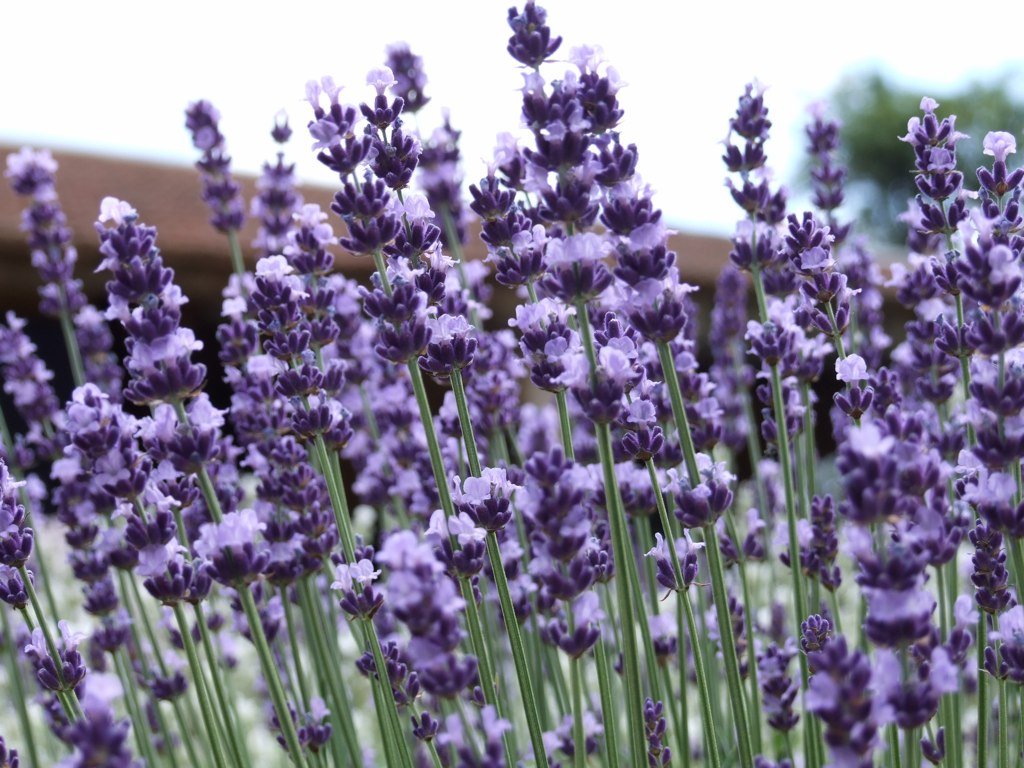
Lavender Vera TRUE Lavandula angustifolia Heirloom Seed
Description English lavender is an evergreen perennial shrub in the Lamiaceae (mint) family that is native to Mediterranean areas. It is well loved but at times difficult to grow in North Carolina. This plant requires perfectly drained soil, preferably on the dry side, and full sun.
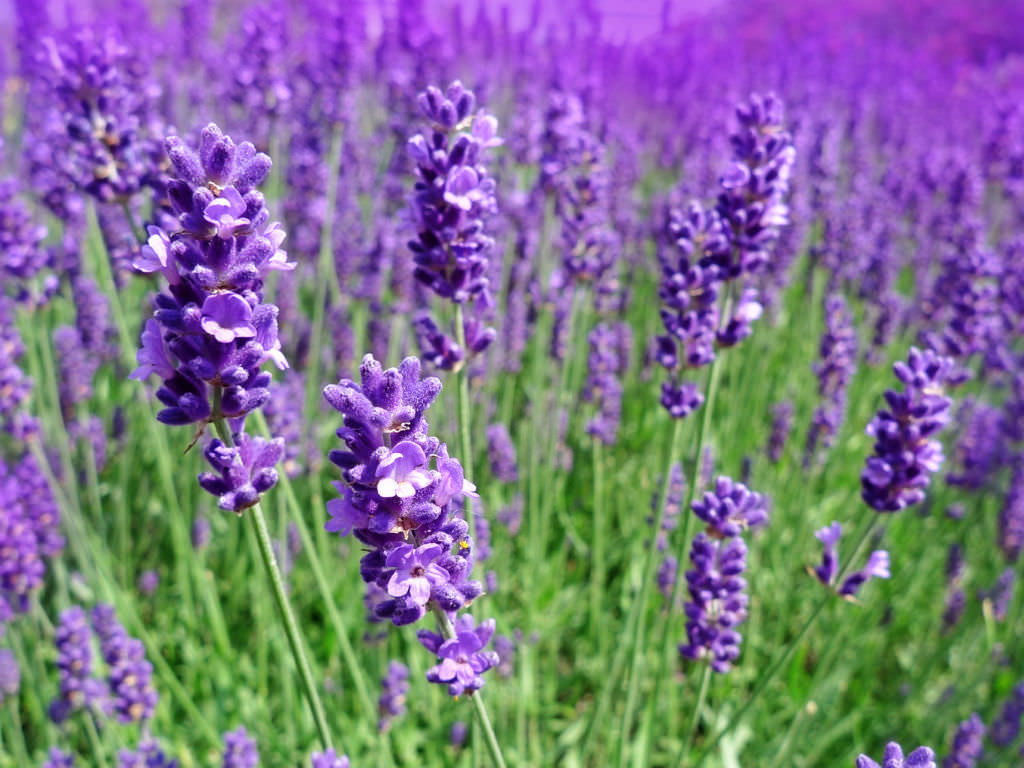
Lavandula angustifolia (English Lavender) World of Flowering Plants
Lavander: Cultivation & Garden Use. The Hardy perennial lavender is a beautiful, fragrant and useful plant to grow in the garden. Check out my specific guide to growing Lavandula angustifolia.. Lavandula reaches from 30 to 90 cm (1 to 3 feet) in height depending on the species. They carry tubular lavender (or blue or purple) flowers from the end of spring to the summer.
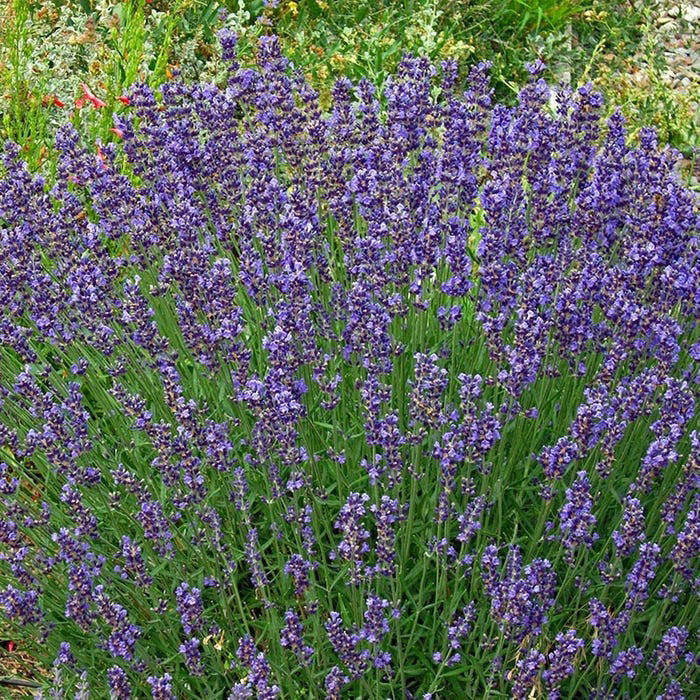
Lavandula angustifolia Vera Shrubs Arboretum Garden Centre
Lavandula angustifolia Vera Growing Zones Zone 5, Zone 6, Zone 7, Zone 8, Zone 9, Zone 10 Advantages Bee Friendly, Attracts Butterflies, Deer Resistant, Cut Flowers, Fragrant Light Requirements Full Sun Mature Height 16-18" tall Bloom Time Early to late summer SKU AM015033 View Full Plant/seed Information About this Product Planting & Care
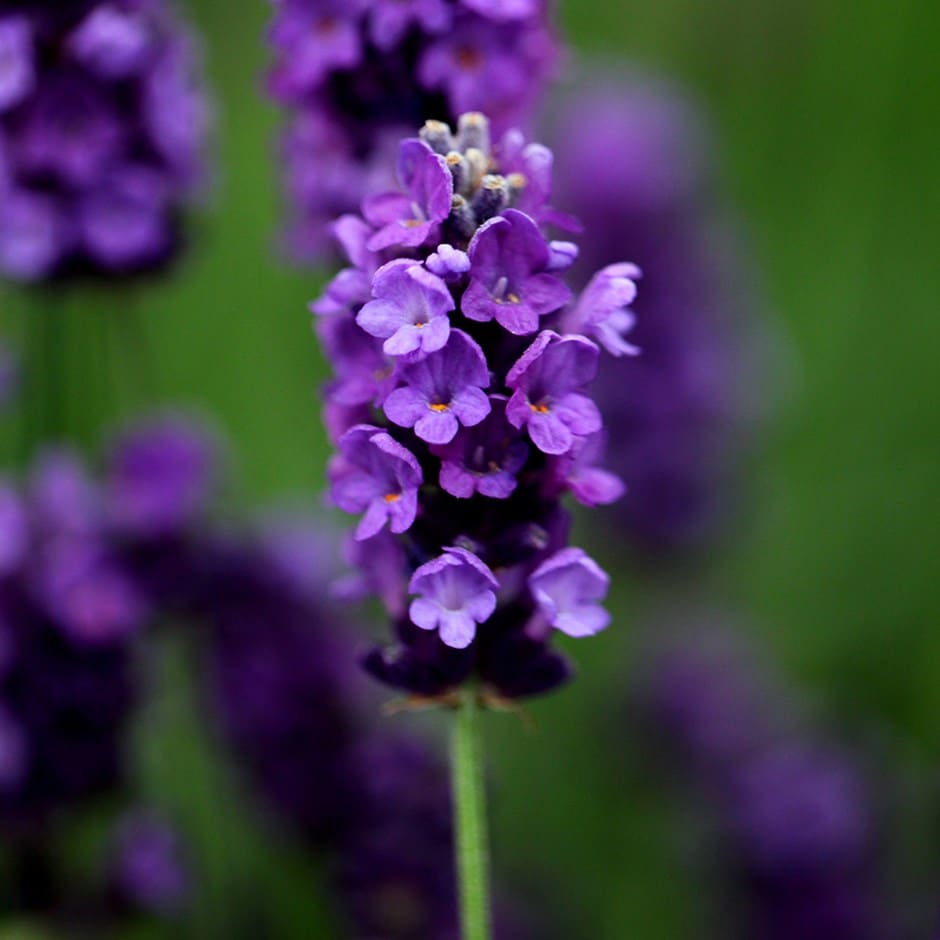
Buy lavender Lavandula angustifolia 'Imperial Gem'
The commonly cultivated lavender is the common or English lavender Lavandula angustifolia (formerly named L. officinalis), which is hardy to USDA Zone 5. A bushy perennial, lavender grows from 1 to 3 feet tall, bearing small blue-violet flowers on spikes with blue-green needle-like foliage. The oils in the flowers give the herb its distinctive.

Lavandula angustifolia Vancouver Island Grows
Vera Lavender, the original species of English lavender, has fragrant flowers that dry well and neat, bushy growth. It is also one of the hardiest of all lavenders. Originally growing wild in the mountains of the Mediterranean region, lavender is one of the most versatile of herbs; in addition to its myriad medicinal uses, it is commonly used for cosmetic, aromatherapy, culinary, and.
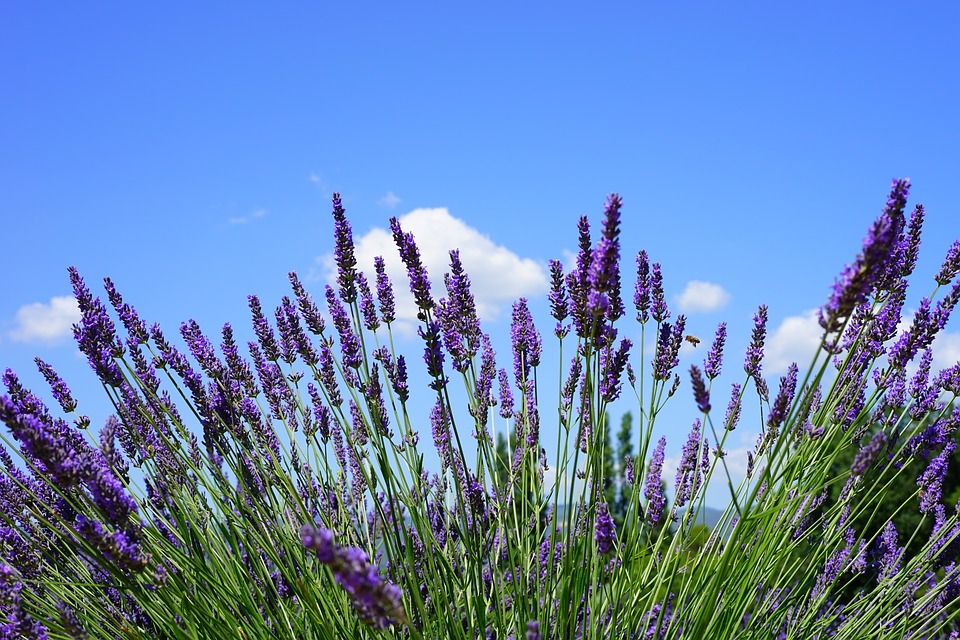
English Lavender seeds, Lavandula angustifolia vera, 3 sizes
Lavandula angustifolia 'Vera' Vera Lavender $ 7.95 per 3-inch pot Add to cart About this plant Height 18 inches Hardiness Perennial in Zones 5-11 Flower Color Purple Characteristics Full Sun, Evergreen, Water Conserving Uses Butterfly, Culinary, Dried Flower, Fragrant, Ornamental Growing & using Vera Lavender

Lavandula angustifolia (English lavender) Go Botany
Lavandula - Wikipedia Toggle Description subsection مازِرونی Oʻzbekcha / ўзбекча Татарча / tatarça ئۇيغۇرچە / Uyghurche of 47 known species of in the mint family, . It is and is found in Cape Verde and the Canary Islands, and from Europe across to northern and eastern Africa, the , southwest Asia to India. [2]
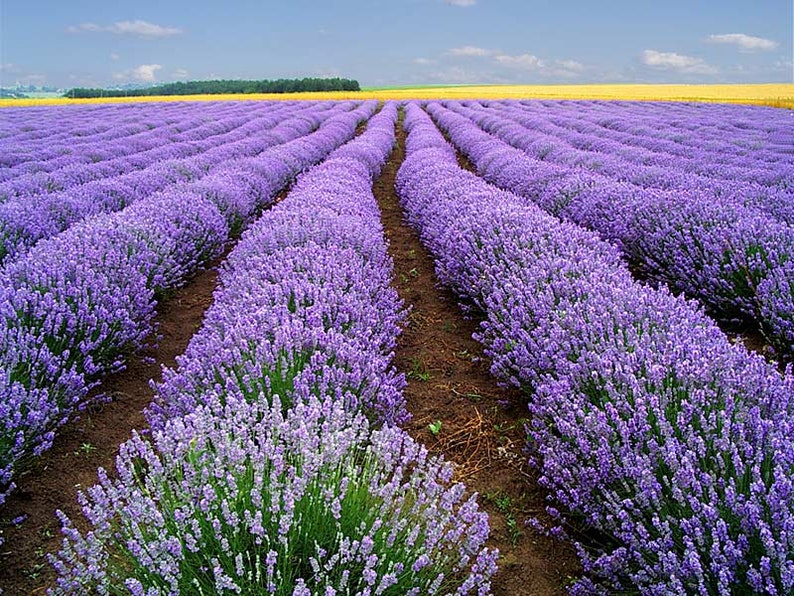
500 True ENGLISH LAVENDER VERA Lavandula Angustifolia Vera Etsy
Lavandula angustifolia 'Vera'|Dutch lavender/RHS Gardening Lavandula angustifolia 'Vera' Dutch lavender Dutch Group are bushy, rounded, evergreen shrubs to ahout 75cm with narrow, aromatic, grey-green leaves and short, dense spikes of small, scented, dark lavender blue flowers on fine, upright stems in summer Synonyms Lavandula angustifolia 'Vera'
A versatibilidade de Alfazema (Lavandula angustifolia)
Lavandula angustifolia 'Vera' (English Lavender) is an outstanding heirloom English Lavender known for its sweetly fragrant oil, dark lavender-blue flower spikes, and compact growth habit. Our selection of 'Vera' is also the most cold hardy variety of English Lavender. key features Botanical Name Lavandula angustifolia 'Vera' Growing Zones
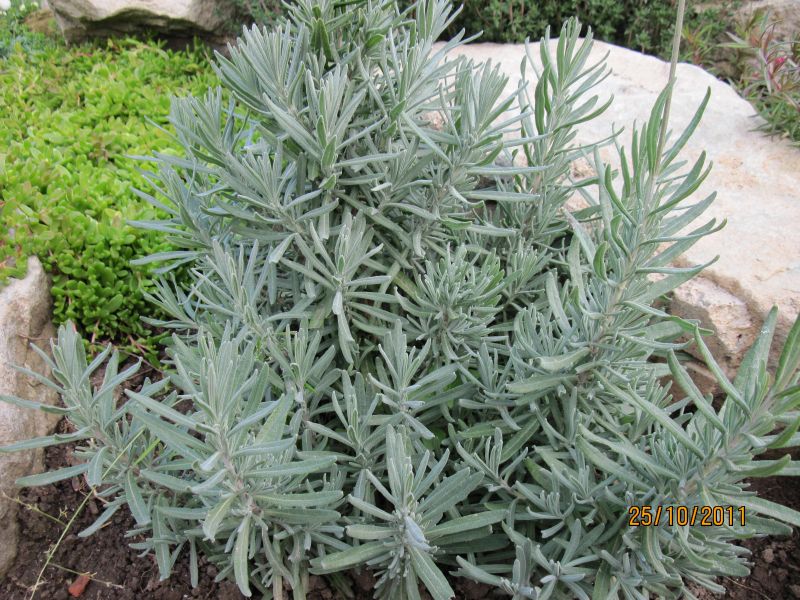
Lavandula officinalis, Lavender seeds
Types of English Lavender . Lavandula angustifolia 'Hidcote' is a very popular and fragrant shorter variety (about 20 inches tall) with a mounded growth habit and dark purple flower spikes.; Lavandula x intermedia 'Hidcote Giant' is a larger version with long stems, achieving a height of 36 to 40 inches with very fragrant bright violet flower spikes.; L. angustifolia 'Munstead' is a slow.
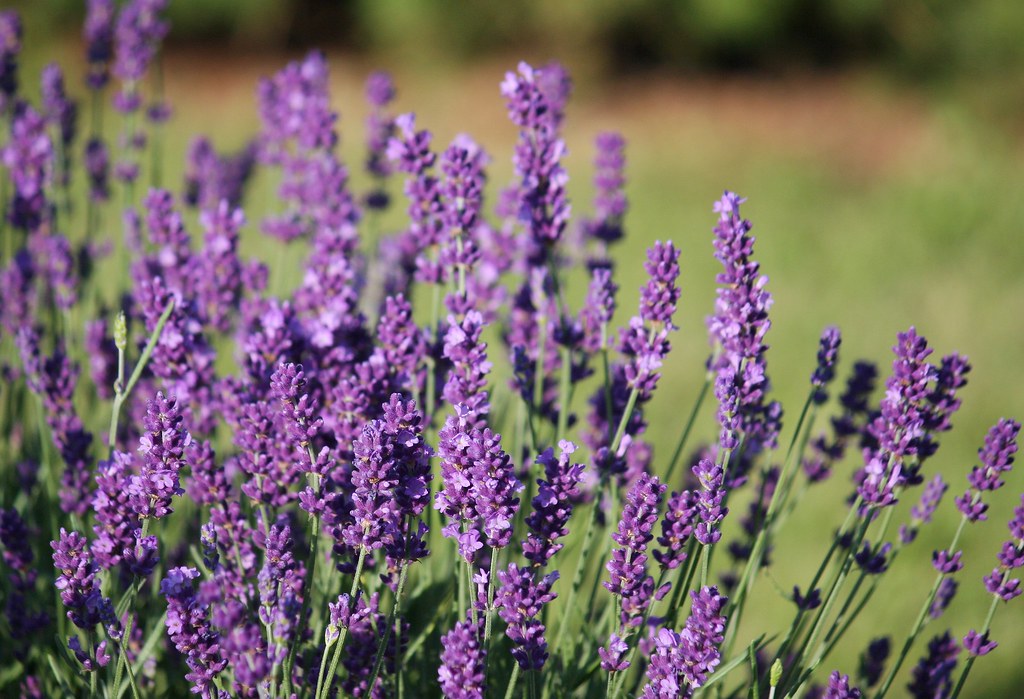
Echter Lavendel (Lavandula angustifolia) Juli 2013 Canon E… Flickr
Often associated with the famous purple fields of Provence, Lavandula angustifolia, commonly known as English lavender, is a perennial herb prized for its fragrant purple flowers and silver-green foliage. Despite the name "English" lavender, the plant is native to the Mediterranean region.

Lavandula angustifolia English Lavender The Seed Vine
Lavandula angustifolia, commonly called English lavender, has been a mainstay of herb gardens for many years. Despite its common name, it is not in fact native to England, but comes primarily from the Mediterranean region. It was reportedly named English lavender because of its ability to grow well in the English climate. This "true lavender.

English Lavender Lavandula Angustifolia Seeds
English Lavender is a great plant to grow to attract bees to your garden. Picture by Tim Ford. As Lavandula angustifolia is drought tolerant they make an ideal plant to grow in drier regions and areas that have hosepipe restrictions in the summer. They are also fairly tolerant to deer and rabbits.

Lavandula angustifolia 'Lady' Lavender Buy Herb Plants
It should have a pH between 6.5 and 8.3. Lavender does not like to stand in wet soil, so a good drainage is needed. In general, this is achieved by the loose sand. Tips for the lavender shrub: Lime the soil once or twice a year. Remove regularly the weed. that can stifle the root.

nnplant Fruits Tree Herbs Tropical House interior plants indoor outdoor tree ship from cali
Nothing beats the soothing scent of fresh lavender in the garden. A group of species in the Lavandula genus, the lavender plant has a wide range of variation, with both annual and perennial types available. Leaf shape is variable, but most types produce leaves covered in soft hairs and have a strong aroma when bruised or brushed against.
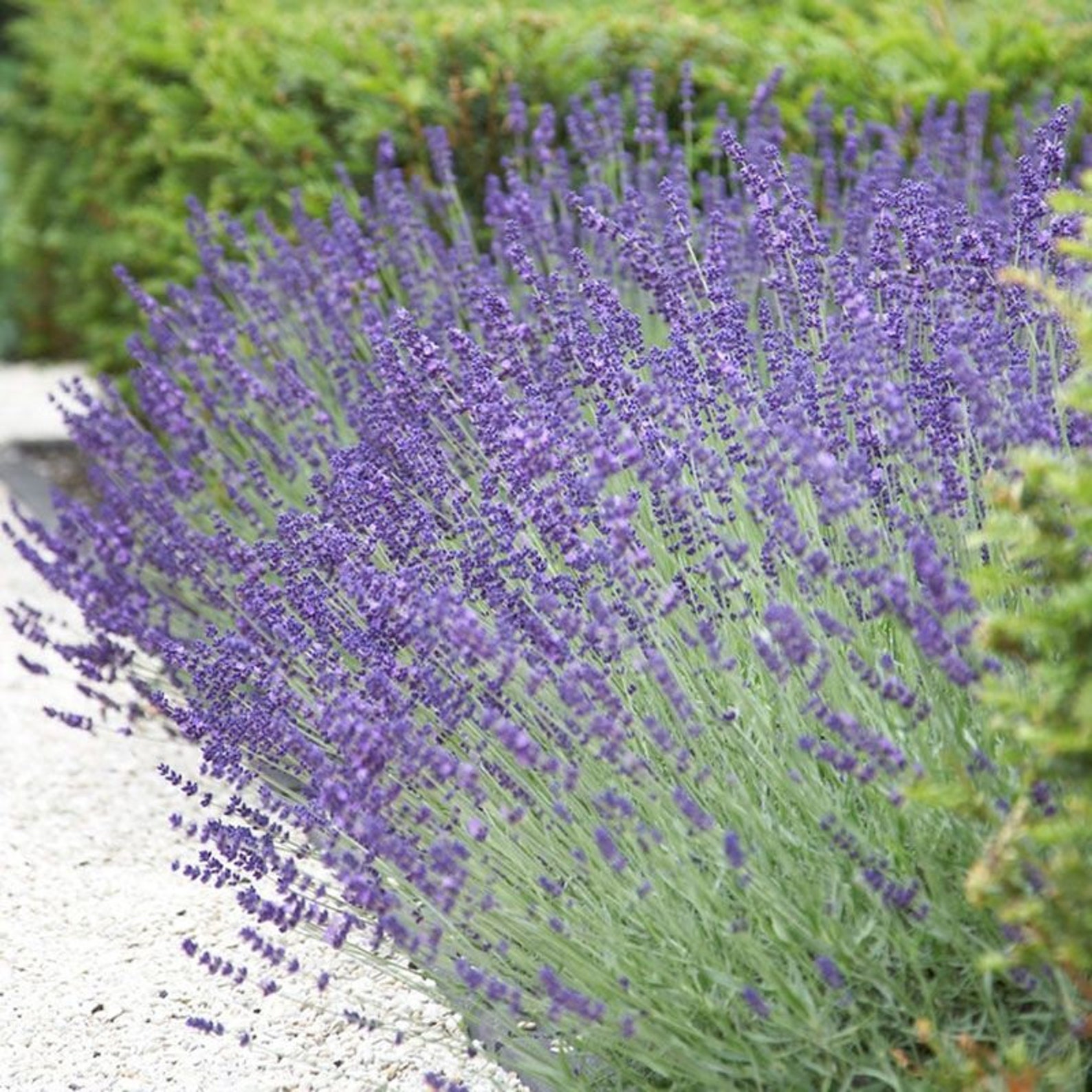
Lavandula Angustifolia Vera 24 True Lavender 500 Seeds Etsy
Very hardy once established. Grows to 24" tall. 100 seeds minimum. Germination: 14-21 days. Maturity: 90-200 days. In early-mid winter, wrap seeds in moist paper towel and refrigerate for 30 days or until sprouted. Plant seedlings in pots and nurture indoors until well after last frost date - mid/late spring. Harden off and plant in full sun.